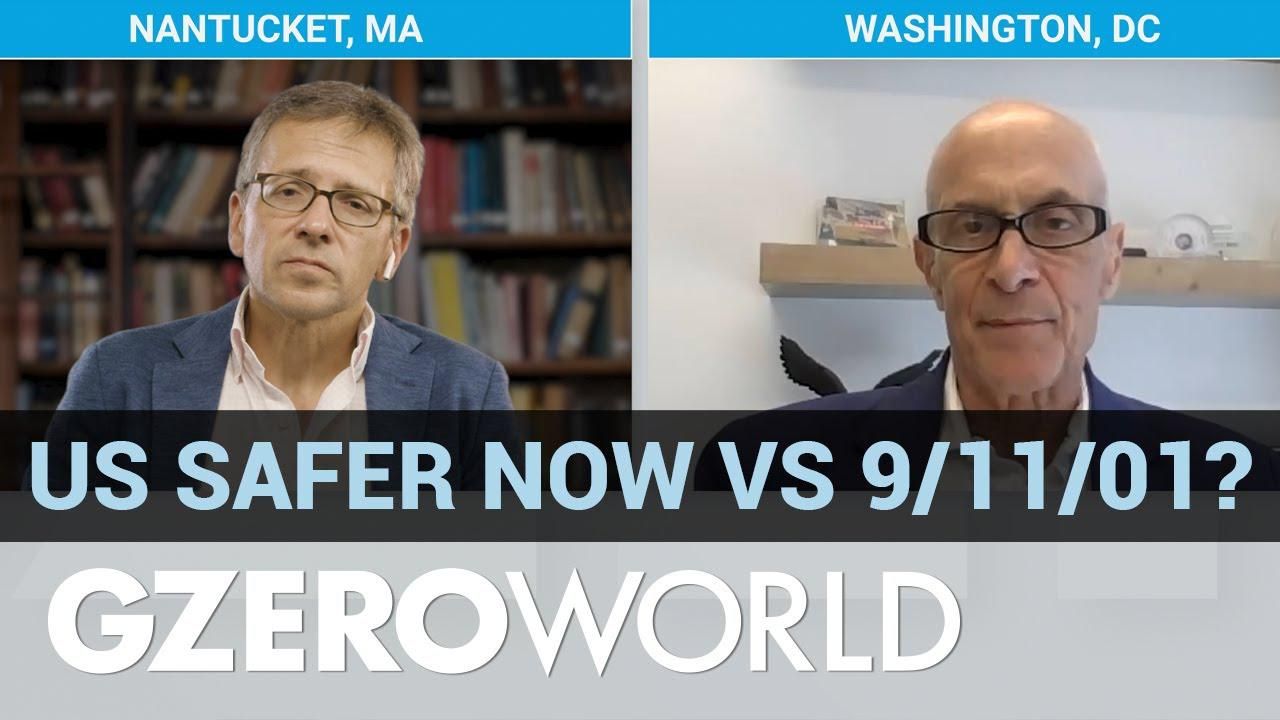GZERO World Clips
Is the US safer from terrorism 20 years after 9/11?

Is the US Safer From Terrorism 20 Years After 9/11? | GZERO World with Ian Bremmer

For Michael Chertoff, former US secretary of Homeland Security from 2005 to 2009, the fact that America has not experienced a single attack by foreign terrorists since 9/11 proves that the US was "successful" in its strategy to prevent terrorism. That "was not an accident and there was a deterrent effect to be honest — had we been lax, more would have tried." Chertoff pushes back against the notion that the US government wasn't transparent enough about the intelligence it was collecting, and credits those efforts with foiling the plot to blow up airplanes mid-air from Heathrow to the US in 2006. Watch his interview with Ian Bremmer on this episode of GZERO World.
1,170: The number of high-rise buildings in Kyiv that were left without heating following a barrage of Russian attacks last night on Ukraine’s capital and its energy facilities, per Kyiv Mayor Vitali Klitschko.
U.S. President Donald Trump and Japanese Prime Minister Sanae Takaichi hold up signed documents regarding securing the supply of critical minerals and rare earths, at a bilateral meeting at Akasaka Palace in Tokyo, Japan, October 28, 2025.
Representatives from the European Union, United Kingdom, Japan, and others will meet in Washington this week to discuss a strategic alliance on critical minerals.
80,000: The number of people estimated to be in the streets of Czechia on Sunday to show their support for President Petr Pavel after he blocked the nomination of an environmental minister who performed the Nazi salute and posted Nazi memorabilia.
The US has started handing $1,000 to the bank accounts of newborn babies. But can policies like this one help boost sagging birthrates in advanced democracies?